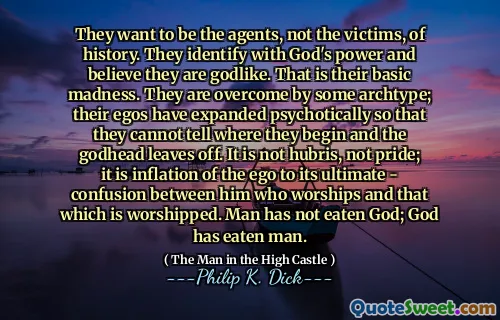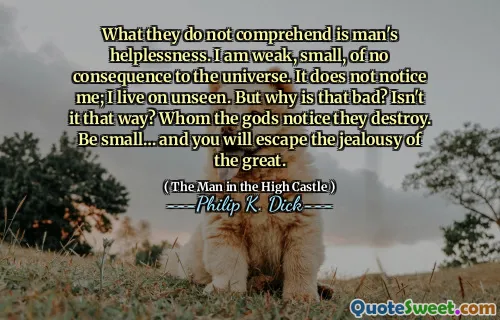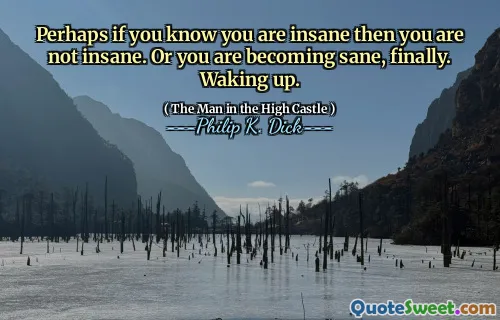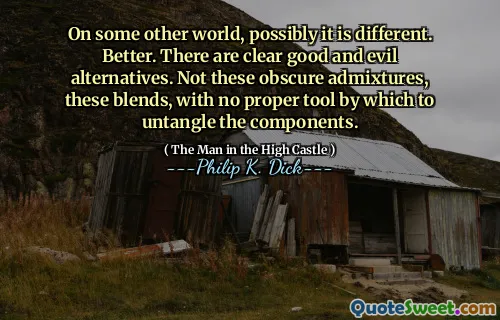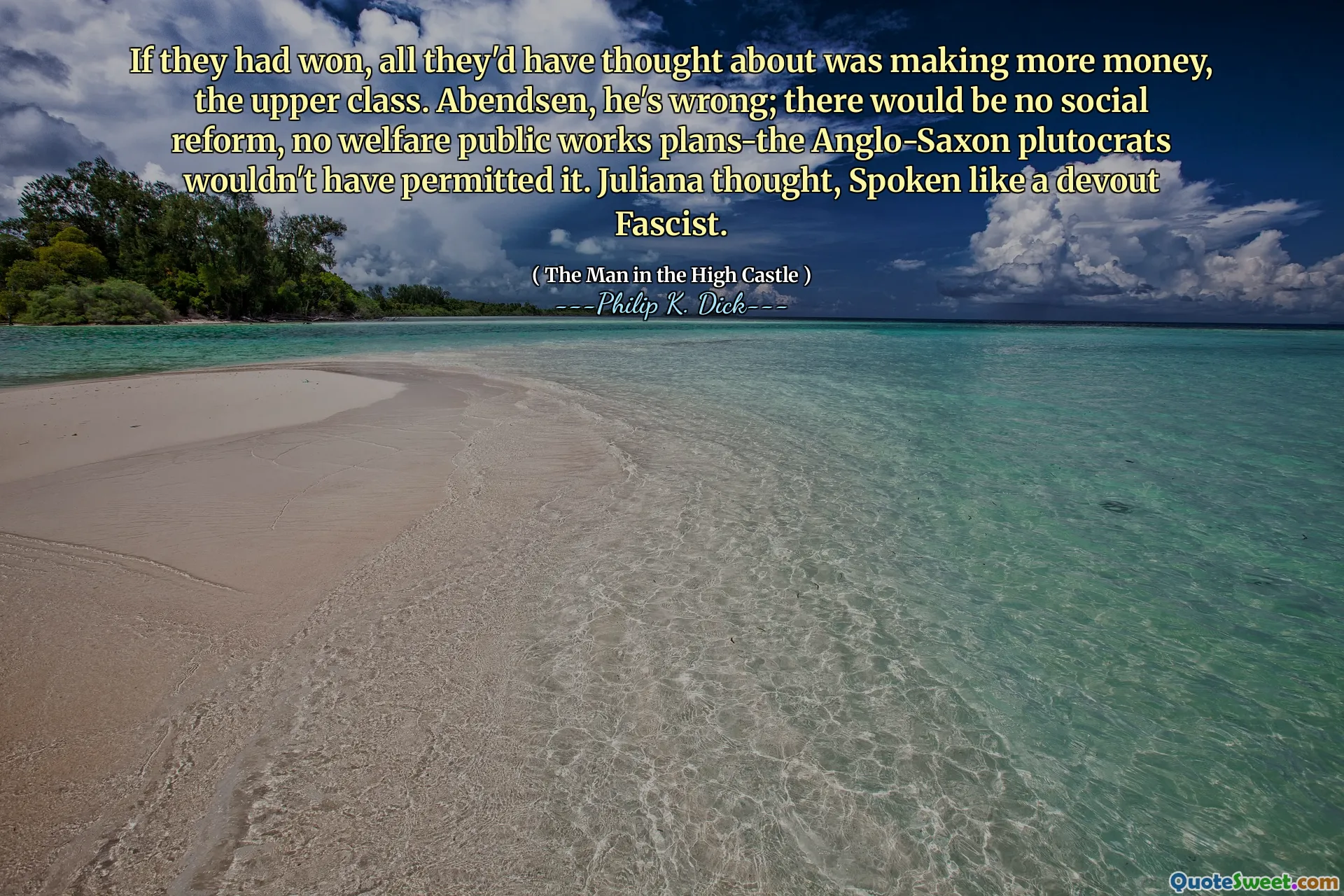
If they had won, all they'd have thought about was making more money, the upper class. Abendsen, he's wrong; there would be no social reform, no welfare public works plans-the Anglo-Saxon plutocrats wouldn't have permitted it. Juliana thought, Spoken like a devout Fascist.
In "The Man in the High Castle" by Philip K. Dick, the character reflects on the motivations of the upper class and their reluctance to support social reform. The statement suggests that, had the upper class won, their primary focus would have been profit maximization rather than the betterment of society. This viewpoint is critical of the affluent's influence on political decisions, asserting that they would not allow for changes that could benefit the public or promote welfare programs.
Juliana's response indicates her disapproval of this perspective, labeling it as an extremist view characteristic of fascist ideology. She recognizes the potential consequences of such a capitalist mindset, suggesting a deep-seated concern for social equity in the face of economic dominance. The interaction highlights the contrasting ideologies present in the narrative, emphasizing the tension between capital interests and the need for societal progress.


